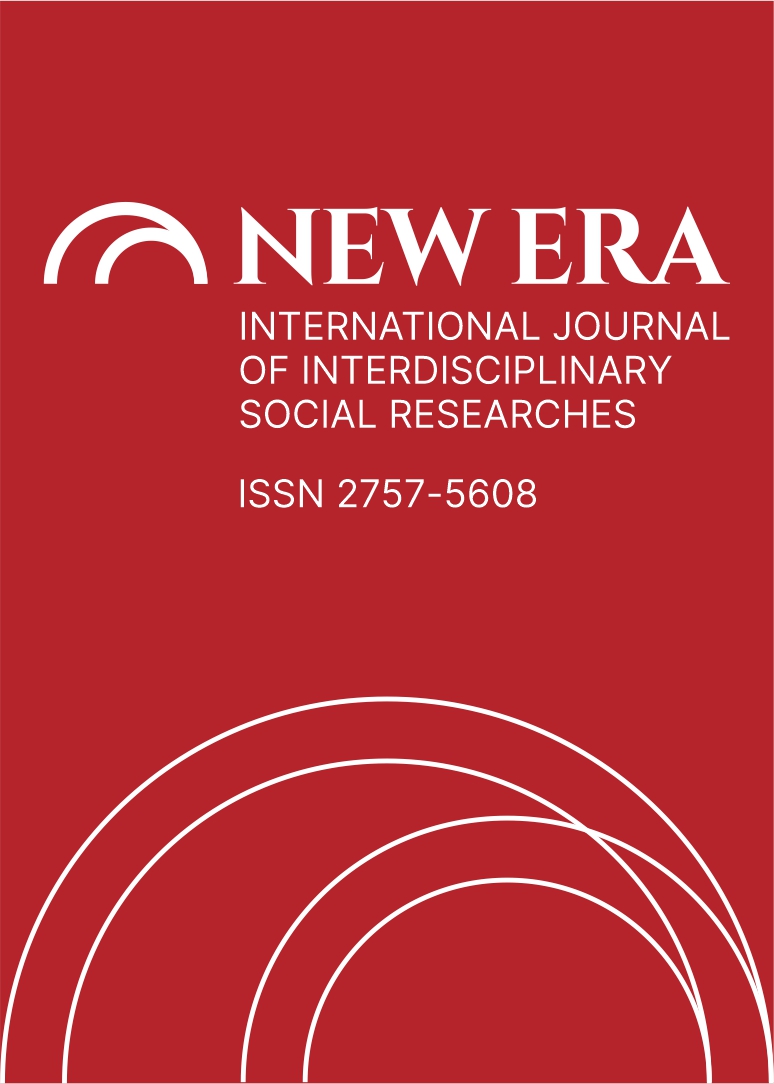CULTURAL SUSTAINABILITY AND CULTURAL FOCUSED DESIGN PROCESS IN FASHION DESIGN
DOI:
https://doi.org/10.5281/zenodo.7757403%20%20Abstract
The use of traditional and cultural elements as a source of inspiration in the fashion design process is one of the most important ways to innovate and make a difference. Cultural elements as an aspect of product design can create unique and original product features, enabling the creation of value-added products in the globalized market. In addition, in terms of cultural sustainability and protection of cultural heritage, it is very important to carry and keep cultural elements alive for future generations through redesign. To draw attention to the use of cultural elements as a source of inspiration in the field of fashion design, as well as carrying and keeping the cultural heritage alive for future generations; to design new products that can fit local and global markets and satisfy consumers culturally and aesthetically; In this study, which aims to create awareness for the consideration or review of cultural elements in the design and product development process and to create a culture-oriented collection development process model for designers, the traditional Konya women's clothing atelier and shalwar, which are in the Konya Ethnography Museum, are used as a source of cultural inspiration in the fashion design process. In line with contemporary and universal design approaches, a special capsule collection consisting of 6 looks and 9 pieces was prepared by using this new collection development process model, which was created based on a culture-oriented design approach. In this context, an application-based study was carried out. The designed products can have a product identity that can take place in local and global markets; It has been emphasized that culture can develop different perspectives in terms of adding artistic and aesthetic value to fashion design, as well as its aesthetic reusability. In this way, it is emphasized that intangible cultural heritage items can be transferred to future generations and become more permanent through sustainable fashion.
References
Kaynakça
Barbaros, H. E. (2020). Zanaat ve endüstriyel tasarım ilişkisinde kültürel sürdürülebilirlik üzerine bir analiz, Doktora tezi, Anadolu Üniversitesi, Eskişehir, (Turkey).
Carlson, D. ve Richards, B. (2011), David Report, Design+Culture: A Return to Fundamentalism at http://davidreport.com/the-report/design-culture-time-cultural-fundamentalism/ (Erişim Tarihi:Haziran 2022)
Er, B. ve Kara, S. (2019). Somut olmayan kültürel miras kapsamındaki el sanatları ürünlerinde sürdürülebilirlik. ulakbilge, 42 s. 755-763.
ELİBOL, Mukaddes. ‘Osmanlı Dönemi Geleneksel Konya İçlik ve Şalvarları’ Osmanlı Döneminde Konya, Editör: Yusuf Küçükdağ, Konya Kültür ve Turizm Müdürlüğü Yayın No:45, Konya:309–313, 2003.
Hsu, C. H., Lin, C. L., ve Lin, R. (2011). A study of framework and process development for cultural product design. In International Conference on Internationalization, Design and Global Development, s. 55-64). Springer, Berlin, Heidelberg.
Lin, R. T. (2007). Transforming Taiwan aboriginal cultural features into modern product design: A case study of a cross- cultural product design model. International Journal of Design, 1(2), s. 45-53.
Lin, R., Sun, M. X., Chang, Y. P., Chan, Y. C., Hsieh, Y. C., ve Huang, Y. C. (2007a). Designing “culture” into modern product: A case study of cultural product design. In Usability and Internationalization. HCI and Culture: Second International Conference on Usability and Internationalization, UI-HCII 2007, Held as Part of HCI International 2007, Beijing, China, July 22-27, 2007, Proceedings, Part I 2 (s. 146-153). Springer Berlin Heidelberg.
Lin, R., Cheng, R., ve Sun, M. X. (2007b). Digital archive database for cultural product design. In Usability and Internationalization. HCI and Culture: Second International Conference on Usability and Internationalization, UI-HCII 2007, Held as Part of HCI International 2007, Beijing, China, July 22-27, 2007, Proceedings, Part I 2 (s. 154-163). Springer Berlin Heidelberg.
Liu, Y. (2017, July). Application of Jiangxi intangible cultural heritage in modern fashion design. In 2017 3rd International Conference on Economics, Social Science, Arts, Education and Management Engineering (ESSAEME 2017). Atlantis Press.
Moalosi, R., Popovic, V., ve Hickling-Hudson, A. (2005). Integration of culture within Botswana product design. Futureground, 2, s. 1-11.
Nadasbaş, S., E. ve Coşkun, G. (2019). Developing model for the usage of cultural elements ın textile and fashion design: a case study on ıdols of anatolian civilizations. International Journal of Management and Applied Science, ISSN: 2394-7926 Volume-5, Issue-11,
Nas, E. (2022). Ürün tasarımında kültürel sürdürülebilirlik ve özgün değer. Dokuz Eylül Üniversitesi Sosyal Bilimler Enstitüsü Dergisi, 24 (Özel Sayı: DEU SBE I. Uluslararası Sosyal Bilimler Kongresi-Sürdürülebilirlik ve Toplumsal Dönüşüm), s. 81-99.
Norman, D.A. (2005). Emotional Design: Why We Love (or Hate) Everyday Things. Basic, New York
ÖNDER, M. (1961). ‘Konya’da Kadın Giyimleri’, Türk Etnografya Dergisi, Türk Tarih
Kurumu Basımevi, sayı: IV, Ankara,
ÖNGE, E. (1985). ‘Konya Baş Oyaları’, Türk Halk Edebiyatı ve Folklorunda Yeni Görüşler, Ankara: 396–405, 1985.
Soini, K., ve Birkeland, I. (2014). Exploring the scientific discourse on cultural sustainability. Geoforum, 51, 213-223.
Vagasi-Kovacs, A. (2013). Fashion Trend Revival–Fashionable cultural heritage. Erasmus University Rotterdam. Graduate Theses and Dissertations.
Yen, H. Y., ve Hsu, C. I. (2017). College student perceptions about the incorporation of cultural elements in fashion design. Fashion and Textiles, 4, s. 1-16.
Wu, T., Hsu, C., and Lin, R. (2004) The Study of Taiwan Aboriginal Culture on Product Design., in Redmond, J., Durling, D. and de Bono, A (eds.), Futureground - DRS International Conference 2004, 17-21 November, Melbourne, Australia.
Defile Linki: https://drive.google.com/file/d/1srEmwcnHduAtmupbSe1qONMmHEMEO8NK/view?usp=share_link
Downloads
Published
How to Cite
Issue
Section
License
Copyright (c) 2023 NEW ERA INTERNATIONAL JOURNAL OF INTERDISCIPLINARY SOCIAL RESEARCHES

This work is licensed under a Creative Commons Attribution-NonCommercial 4.0 International License.


